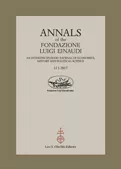This paper reconstructs the attempts to adopt an operational methodology by Samuelson, Sraffa and Leontief as a reaction against the perceived limits of the experimentalism of the Paretian school. While appreciating Pareto’s anti-deductivist position and his critique of any substantialist theory of value, these three authors are persuaded that his theory still relies upon the unverifiable assumptions of Jevonian and Walrasian theory. Despite the striking differences in their programs, it is shown that Samuelson, Sraffa and Leontief share the belief that only by recasting fundamental concepts of economics in an operational way, it becomes possible to ground theory on experience, and that their theories represent parallel outcomes of the same trend in the history of general equilibrium economics. Their attempt at redefining, respectively, behaviour, value and equilibrium are analyzed by focusing on their common source in the Paretian framework, on their shared criticism of unoperational notions and on their peculiarities. The feasibility of the operationalist program in economics, as well as its compatibility with general equilibrium is then assessed, also by bearing in mind its reception in physics and epistemology.



